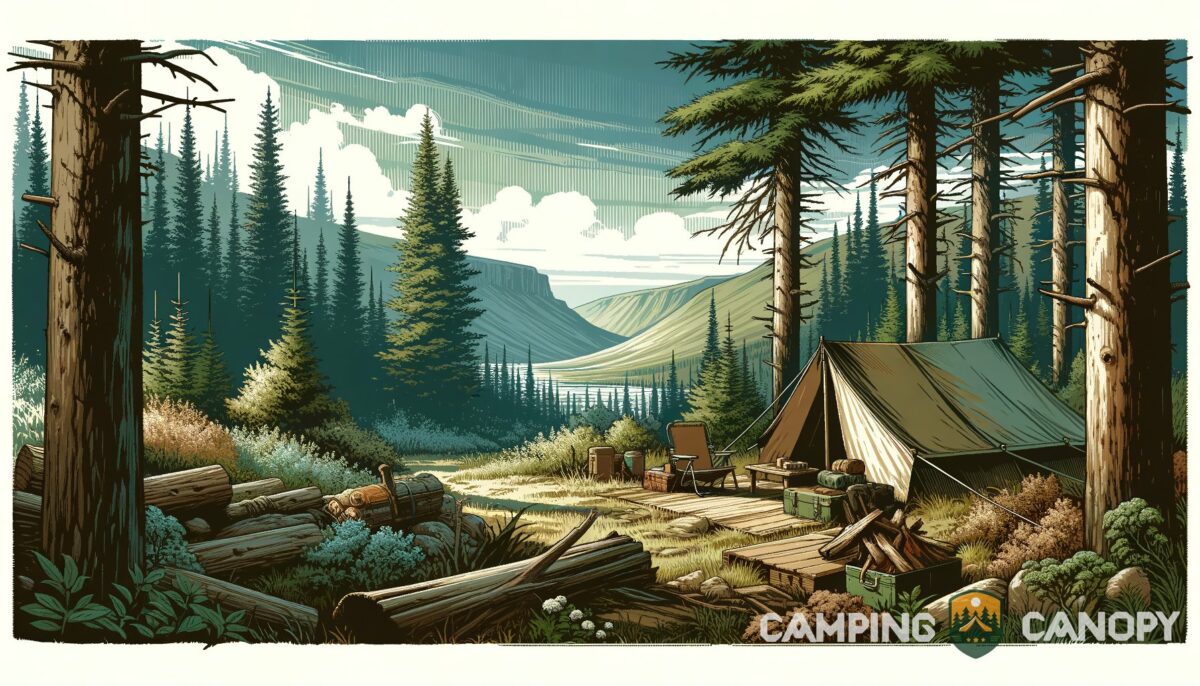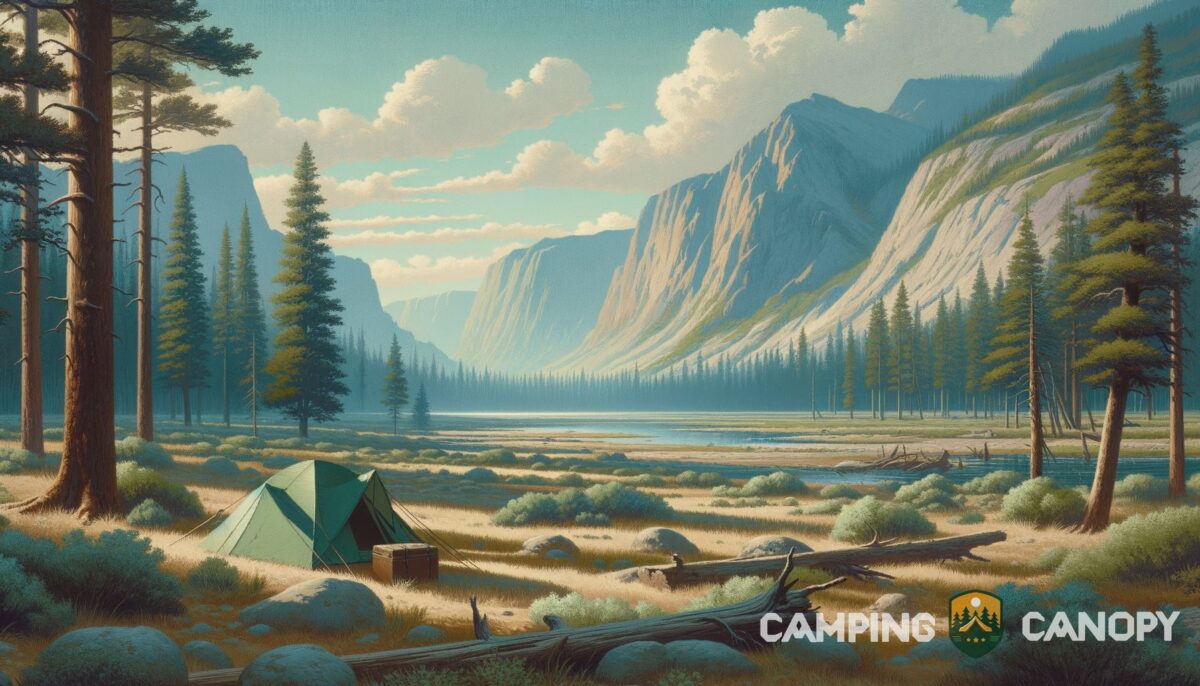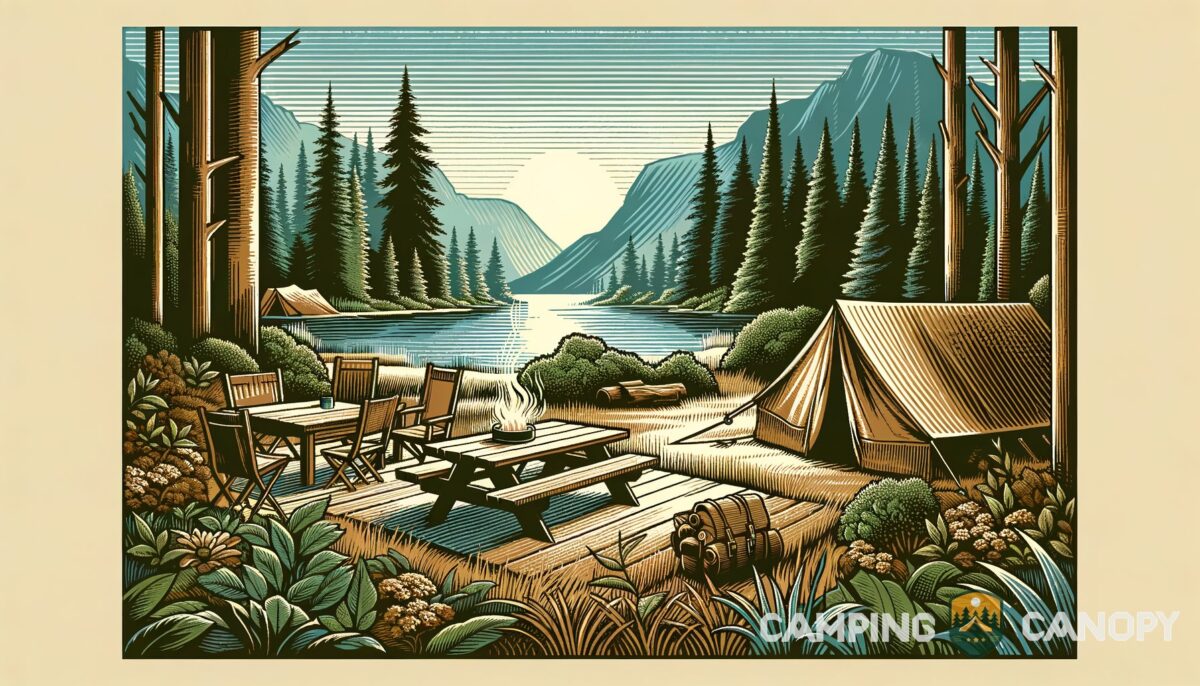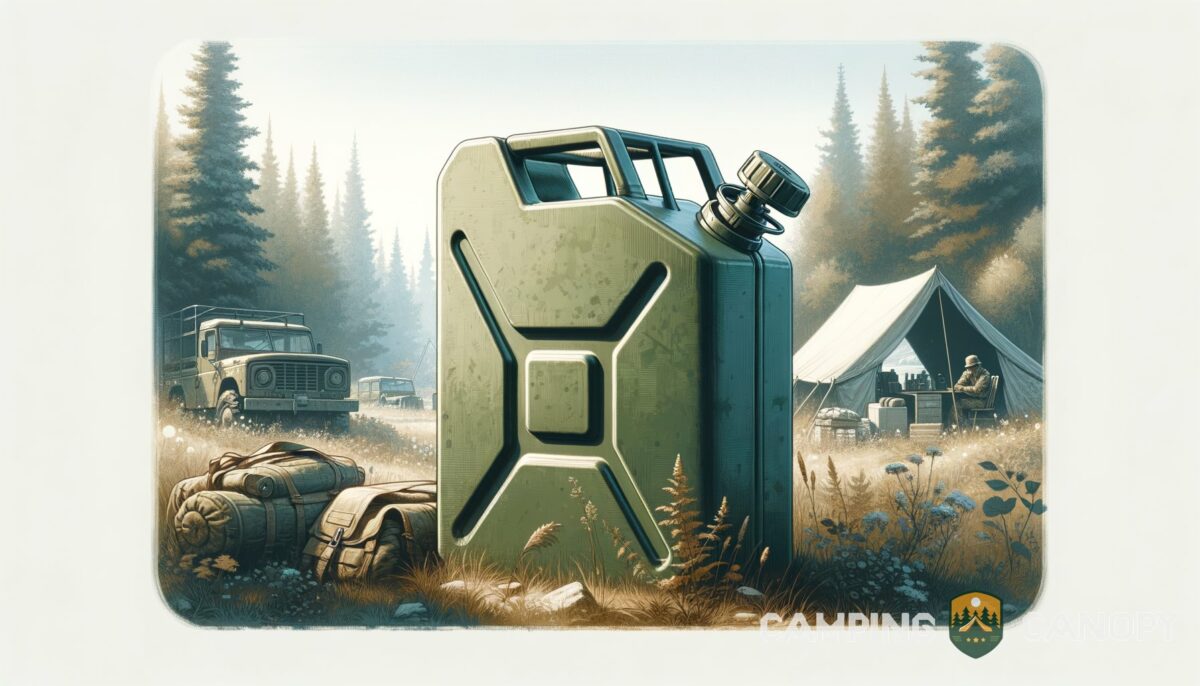Growing up in Boulder gave me a deep appreciation for nature and the art of camping. This post will dive into what is camping and why it’s such a transformative experience for those who partake in it, helping you understand the Leave No Trace principles.
Key takeaways
- Choose wisely: The right campsite can make or break your trip.
- Plan ahead: Reserve sites early and understand permit requirements.
- Respect nature: Follow Leave No Trace principles to conserve wilderness areas.
- Be prepared: Gear up appropriately and be ready for all situations.
What is camping?
Camping is a form of outdoor recreation that involves spending one or more nights in a temporary shelter in the great outdoors. It’s not just about sleeping under the stars; it’s an experience that connects people with nature, offering a break from the hustle and bustle of daily life.
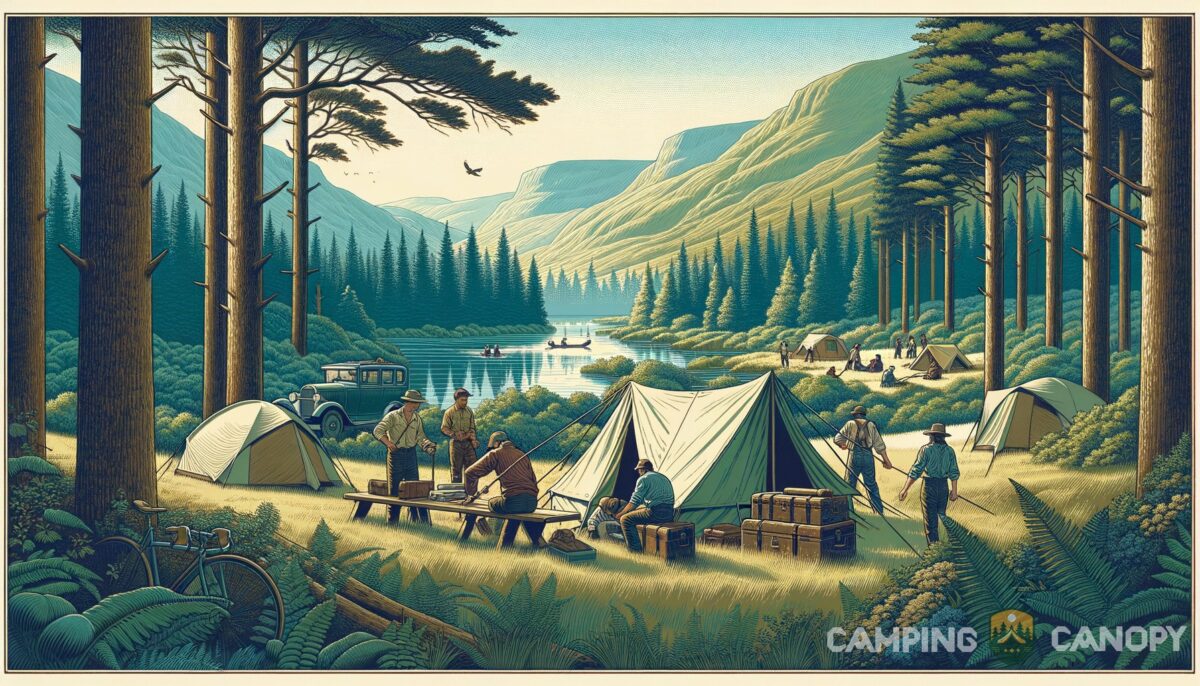
Whether in a tent, RV, or bivy, camping allows participants to immerse themselves in nature, engaging in activities that bring enjoyment or serve as an educational experience.
Here’s a quick overview of the camping essentials:
Tip: Choosing the right campground
Consider your comfort level and the type of experience you want. Families may prefer campgrounds with amenities, while solo adventurers might enjoy the solitude of backcountry camping.
- Basic temporary shelters include tents, recreational vehicles, and bivies.
- Common locations are national parks, wilderness areas, and commercial campgrounds.
- Activities during camping might encompass hiking, fishing, and simply enjoying the tranquility of nature.
Camping isn’t just a leisure activity; it’s a means to teach self-reliance and teamwork, especially among youth groups like Scouts. It became a notable hobby among elites in the early 20th century and has since grown in popularity across various socioeconomic classes.
Each camping trip is an opportunity to practice sustainability and respect for nature, emphasizing the importance of following the Leave No Trace principles.
Types of camping
Camping can be broadly categorized by the types of accommodation and the activities they entail. Each category offers a unique way to experience nature and outdoor adventures.
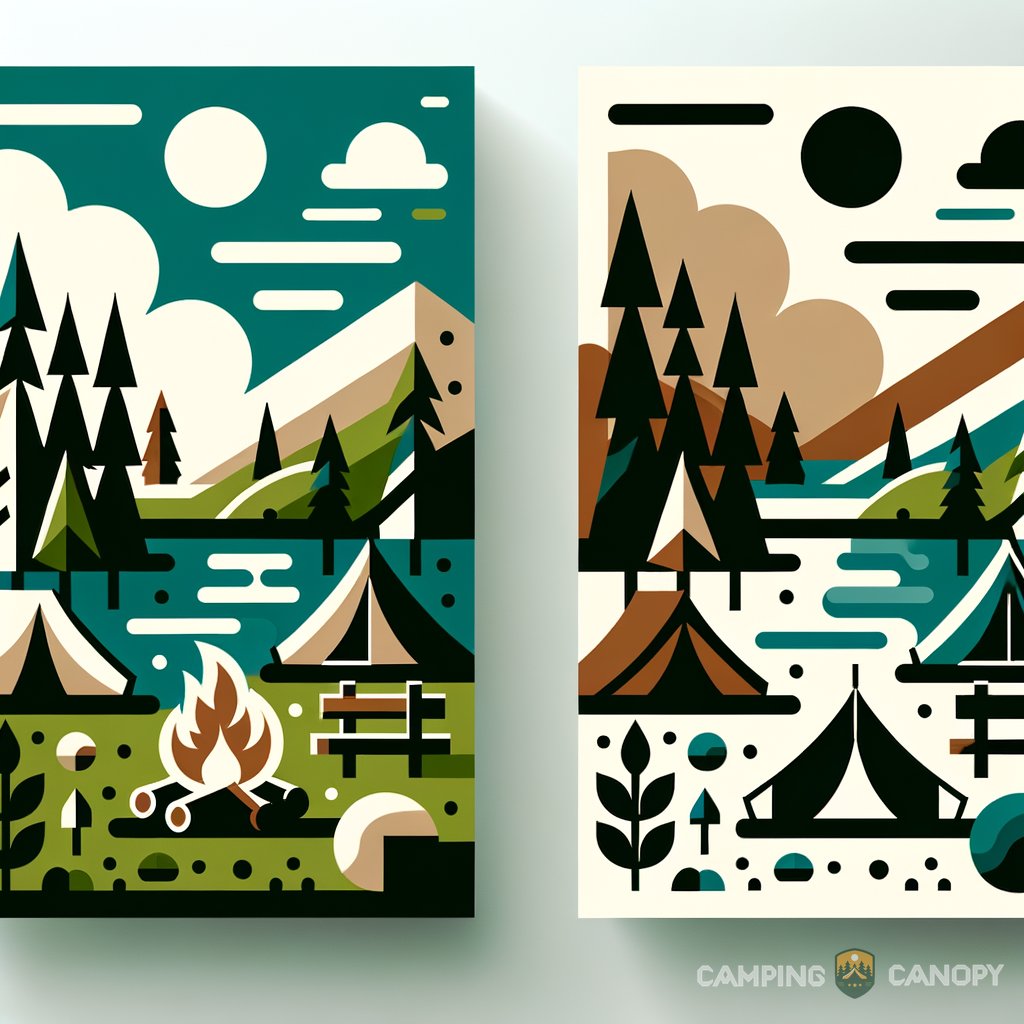
Tent camping
Tent camping is the quintessential camping experience, where campers set up a tent at a campsite or in the wilderness. It offers the classic appeal of being close to nature, requiring campers to bring their gear such as sleeping bags, cooking equipment, and other essentials.
Tip: Leave No Trace
Familiarize yourself with and adhere to Leave No Trace principles. This ensures the preservation of natural beauty and maintains the integrity of outdoor spaces for future generations.
Tent camping is versatile, allowing for campsites in national parks, near bodies of water, or even in one’s backyard for an easy escape to nature.
RV and car camping
For those preferring a bit more comfort and convenience, RV and car camping offer an excellent alternative. This style incorporates a recreational vehicle or a car to sleep in or transport camping gear to designated campgrounds with amenities such as electricity and water hookups.
It’s an appealing option for families and those looking to explore the outdoors without fully committing to a more primitive camping experience. Understand the intricacies and benefits of an RV camping trip by exploring what an RV is.
Backcountry and wilderness camping
Backcountry and wilderness camping are for the more adventurous campers who seek to immerse themselves in remote natural settings. This form of camping usually requires hiking to reach the campsite, carrying all necessary supplies on one’s back.
It’s crucial for wilderness campers to practice Leave No Trace principles diligently to minimize their impact on the environment. For tips on how to manage waste in the wilderness, learning what a cathole in camping is might be invaluable.
Essential camping gear
No matter the type of camping, certain gear is indispensable for a successful trip.
Shelter and sleeping
A reliable shelter is paramount. Tents offer a traditional camping experience, while bivy sacks provide a lightweight, minimalist alternative for solo travelers.
Understand the unique benefits of a bivy sack by checking out what a bivy sack is. Regardless of your choice, ensure it’s appropriate for the weather conditions you might face.
Cooking and eating
Cooking gear is essential for preparing meals in the great outdoors. Options range from portable stoves for backpackers to larger grills great for family campgrounds. Equally important are utensils, plates, and cleaning supplies to manage meals efficiently.
Safety and navigation
A well-stocked first aid kit, navigation tools like a map and compass or a GPS device, and a multi-tool are non-negotiable items. Plus, information on how to safely attract help if needed can mean the difference between a minor hiccup and a crisis.
| Activity | Required Permit | Fee Structure |
|---|---|---|
| Wilderness Camping | Yes | $21 administrative fee + $2 per person/night |
| RV Camping | No | Varies by location |
| Tent Camping | Sometimes | Varies by location |
Camping, in its various forms, offers a connection to nature that is both enriching and essential for the soul. Whether you’re a seasoned camper or new to the experience, the right preparation, knowledge, and respect for the environment will lead to memorable outdoor adventures.
Remember, every camping trip is an opportunity to practice and promote the conservation of our natural world, making it imperative to familiarize yourself with practices such as Leave No Tracing principles.
Choosing the right campsite
When planning your camping trip, one of the most crucial decisions is selecting the ideal campsite. This choice can significantly influence the enjoyment and safety of your adventure.
Consider the location
The first step in choosing a campsite is to consider the location relative to the activities you wish to do. Whether it’s hiking, fishing, or simply relaxing, ensure the campsite’s location supports your desired activities. Also, think about the proximity to water sources and the view you’d prefer to wake up to.
Evaluate the amenities
Depending on your level of comfort and the camping experience you’re seeking, you’ll want to evaluate what amenities are available at the campsite. Some sites offer full electrical and water hookups for RVs, while others might only provide a patch of ground for your tent. Research ahead to ensure the site matches your expectations.
Safety considerations
Always check the safety of the chosen campsite. Look into the wildlife activity in the area, any advisories about weather conditions, and the general safety guidelines provided by the campsite. It’s better to be prepared than caught off guard.
Understanding camping permits and fees
Navigating the world of camping permits and fees can seem daunting at first, but it’s essential for a hassle-free camping experience.
Why permits are necessary
Permits help manage the number of campers in an area, protecting the environment and ensuring a pleasant experience for everyone. They’re usually required for backcountry camping or staying in protected areas such as national or state parks.
On one memorable trip to the Everglades, despite all our planning, we were caught in a surprise downpour. It was then we truly appreciated choosing a campsite with higher ground and nearby shelter options.
Chris, Camping Canopy Founder
Dos and don’ts of camping
To ensure a safe and enjoyable camping experience, it’s crucial to adhere to certain guidelines. These dos and don’ts will help you navigate the basics of camping etiquette and safety.
Dos
- Do plan and reserve your campsite in advance to ensure availability.
- Do pack a first aid kit and familiarize yourself with basic first aid practices.
- Do respect wildlife by observing from a distance and not feeding them.
- Do practice Leave No Trace principles to minimize your environmental impact.
Don’ts
- Don’t leave your trash behind; always pack out what you pack in.
- Don’t disturb other campers with loud noises or music.
- Don’t forget to check the weather forecast and prepare accordingly.
- Don’t damage or remove natural objects such as plants or rocks.
Fee structures
The cost of camping can vary widely depending on the location, amenities, and type of camping you’re doing. Some sites may have a simple flat rate, while others charge more fees for extra vehicles, pets, or amenities like electrical hookups.
Frequently asked questions (FAQ)
Utilize online resources and official campground websites to search for and reserve campsites. Be sure to book well in advance for popular locations.
Yes, some public lands managed by the BLM or USFS offer free dispersed camping, but always check local regulations first.
Follow Leave No Trace principles, such as packing out all your garbage, respecting wildlife, and minimizing campfire impacts.
Keep a safe distance, securely store your food, and never feed or attempt to approach wildlife.
No, camping is usually only allowed in designated campgrounds within national parks to protect the environment and ensure visitor safety.
Common reasons include applying for dates outside the permissible window, incomplete information, or the quota for the campsite being reached.
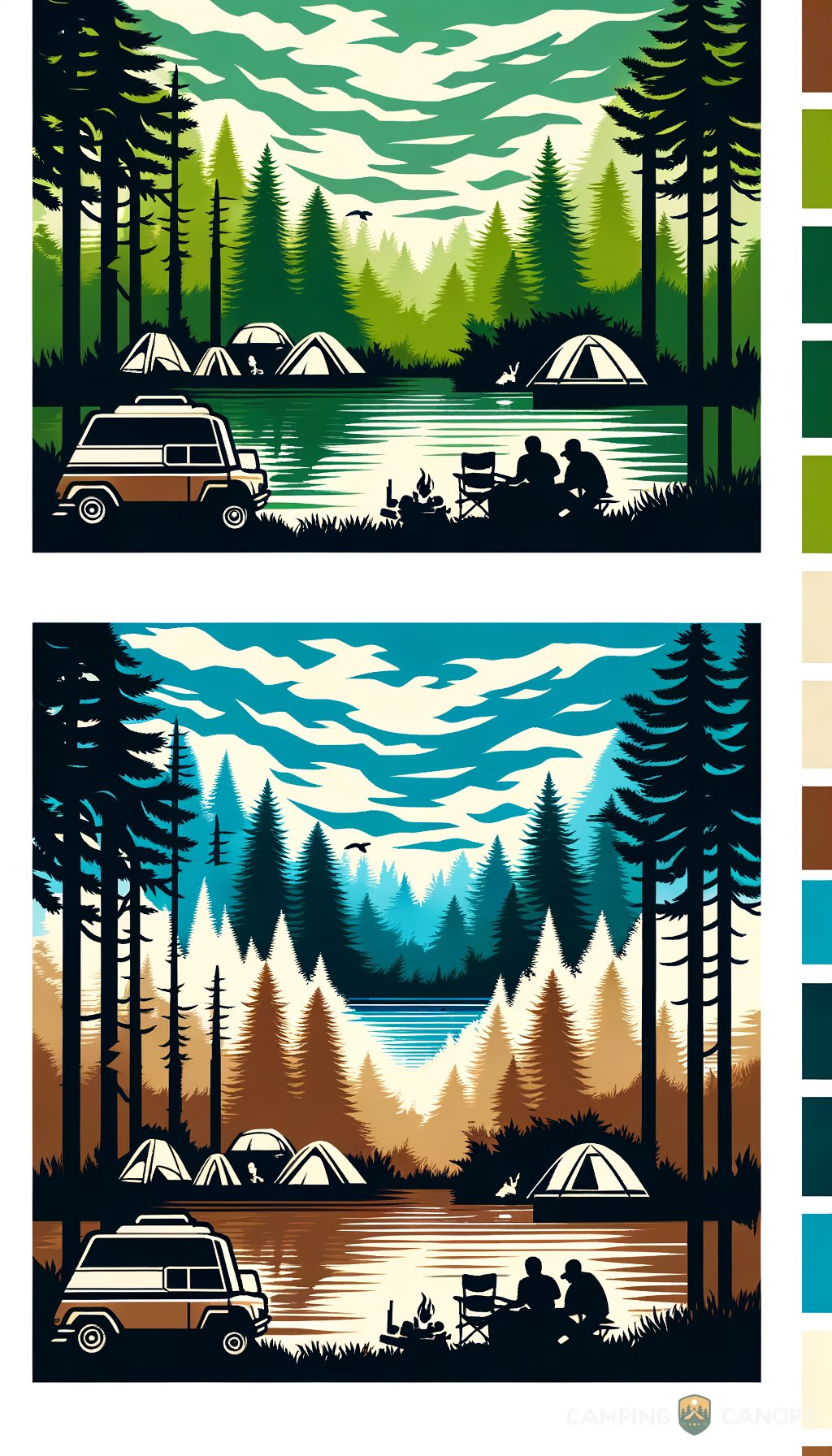
Final thoughts
As we wrap up our exploration of the world of camping, remember that the perfect camping trip aligns with your expectations and comfort levels. Whether you’re looking for the thrill of backcountry wilderness or the comfort of an RV park, camping offers a unique blend of adventure, relaxation, and connection to nature.
Always plan ahead, respect the environment, and embrace the adventure spirit. For more guides on making the most out of your outdoor adventures, be sure to explore what a cathole in camping is.




